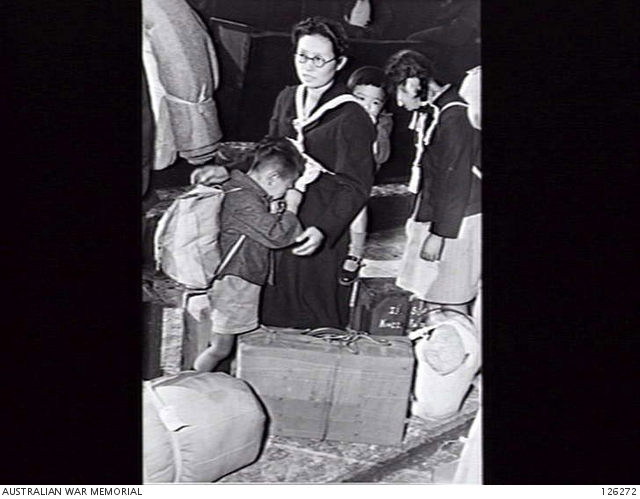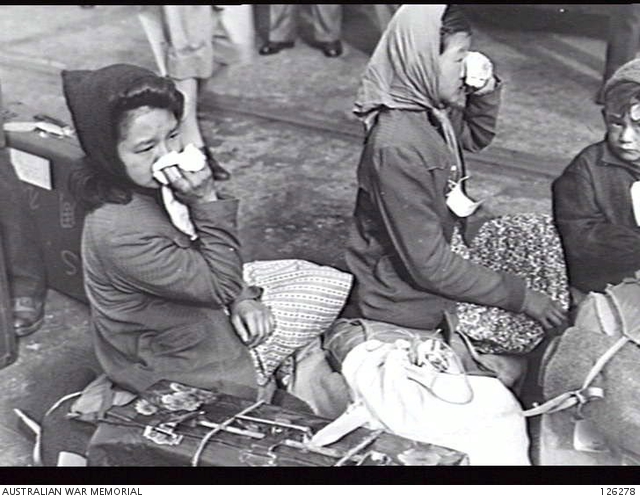
In the attempt amplify the many voices of Taiwan. #NotTaiwansWar #Plurality Democracy, language justice & Indigenous history. PhD researcher in real life.
How to get URL link on X (Twitter) App


 Turivuan Danav, a Paiwan chief & one of the first Indigenous teachers in postwar TW, was known as the 'Paiwan President' in his time. Under colonial oppression, he advocated for an independent Taiwan & Indigenous republic, designed a national flag & drafted an anthem in Paiwan.
Turivuan Danav, a Paiwan chief & one of the first Indigenous teachers in postwar TW, was known as the 'Paiwan President' in his time. Under colonial oppression, he advocated for an independent Taiwan & Indigenous republic, designed a national flag & drafted an anthem in Paiwan. 

https://x.com/BBCWorld/status/1720461445291274459?s=20



 The 1874 Japanese invasion was a military response to the killing of shipwrecked Ryukyuans in Taiwan by Paiwan individuals. The punitive expedition was used by Japan to legitimise the empire's new colonial control of Ryukyu (Okinawa) & it marked an impt step in its expansion. 2/
The 1874 Japanese invasion was a military response to the killing of shipwrecked Ryukyuans in Taiwan by Paiwan individuals. The punitive expedition was used by Japan to legitimise the empire's new colonial control of Ryukyu (Okinawa) & it marked an impt step in its expansion. 2/ 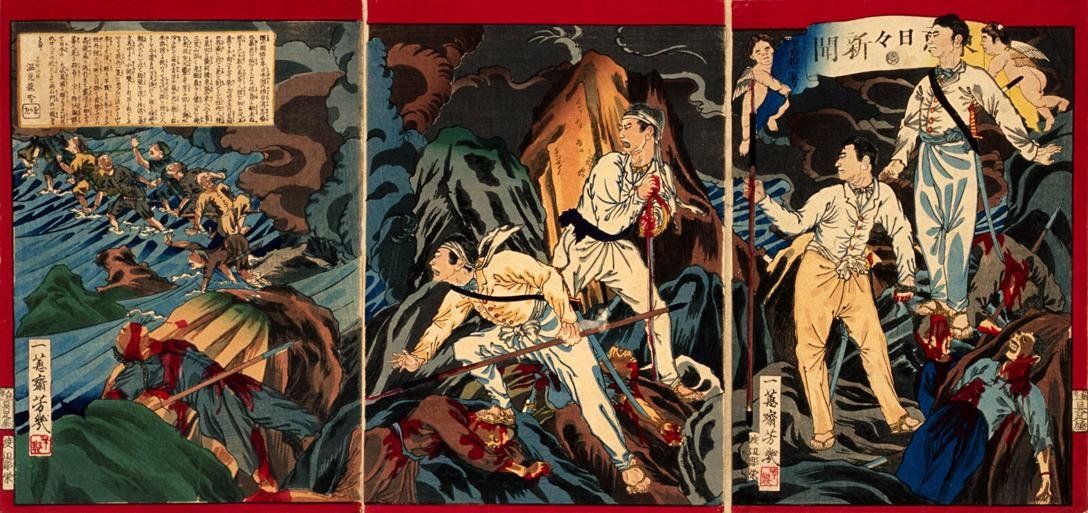
https://twitter.com/bopinion/status/1464024563868737546Back in high school, his Waishengren (post-49 Chinese-Taiwanese) backgrounds did set him apart. His parents have great family connections in China & they have settled in Shanghai for business. Despite being good friends, we'd have arguments on TW's status & Taiwanese history. 2/

https://twitter.com/rhokilpatrick/status/1447035723551440902
 Published in 1946, Orphan of Asia depicts a Taiwanese student who got caught in conflicting identities. Feeling marginalised & abandoned, the protagonist disappears w a mental breakdown. It's a powerful depiction of the psychological impact of colonialism. toolkit.culture.tw/en/literaturei…
Published in 1946, Orphan of Asia depicts a Taiwanese student who got caught in conflicting identities. Feeling marginalised & abandoned, the protagonist disappears w a mental breakdown. It's a powerful depiction of the psychological impact of colonialism. toolkit.culture.tw/en/literaturei…


 The village in the 龍岡 Longgang area traces its root to the Yunnan KMT troops that were retreated to northern Thailand & Burma in the 50s. As their history has been closely tied to the expelled ROC, it is understandable that some ppl have a sentimental attachment to the flag. 2/
The village in the 龍岡 Longgang area traces its root to the Yunnan KMT troops that were retreated to northern Thailand & Burma in the 50s. As their history has been closely tied to the expelled ROC, it is understandable that some ppl have a sentimental attachment to the flag. 2/ 

https://twitter.com/catielila/status/1442747744645386241Like a lot of working-class Taiwanese in the 50s, my grandma migrated to Taipei from the south in search of better opportunities for her family. Even though they settled in Taipei, she never had the chance to learn Mandarin due to her age, social circle & economic hardship. 2/

 Born in 1919, Suniuo, a member of the Amis, was a young sumo & baseball enthusiast from the East coast of Japanese Taiwan. He was enlisted in the Takasago Unit (高砂義勇軍) & was stationed in Morotai island of Indonesia before it was overrun by the US-Australian troop in 1944. 2/
Born in 1919, Suniuo, a member of the Amis, was a young sumo & baseball enthusiast from the East coast of Japanese Taiwan. He was enlisted in the Takasago Unit (高砂義勇軍) & was stationed in Morotai island of Indonesia before it was overrun by the US-Australian troop in 1944. 2/

 She was born in Tainan under Japanese rule. she had a comfortable childhood before WW2. From a moderately well-off city family, she had a fairly Japanised upbringing. She was given a Japanese name & education. She went by her Japanese nickname 梅 (u-me) throughout her life. 2/
She was born in Tainan under Japanese rule. she had a comfortable childhood before WW2. From a moderately well-off city family, she had a fairly Japanised upbringing. She was given a Japanese name & education. She went by her Japanese nickname 梅 (u-me) throughout her life. 2/
https://twitter.com/lnachman32/status/1299002036873121793These five HK asylum-seekers include 21y 文家健 & 24y 吳仲謙, both have been indicted for protest-related activities. According to the report, the Tsai admin keeps this info confidential because the asylum-seekers could be further persecuted due to the HK national security law.
https://twitter.com/dtbyler/status/1299151305823281152All this became even more problematic when the Han-centric successors ROC/PRC decided to "pretend to be a nation-state" (Pyle, 1990). While decolonisation discourse thrives in other parts of the world, the Chinese continental & settler colonisation remains largely unchallenged.
https://twitter.com/CassyOConnorMP/status/1297276435468414976Ex: Chinese students defended Aus as a friendly place on SBS & that got them horrible online abuses from Chinese netizens calling them "Han-race traitors". So these voices get shut down. Chinese citizens that think differently often don't feel safe here.
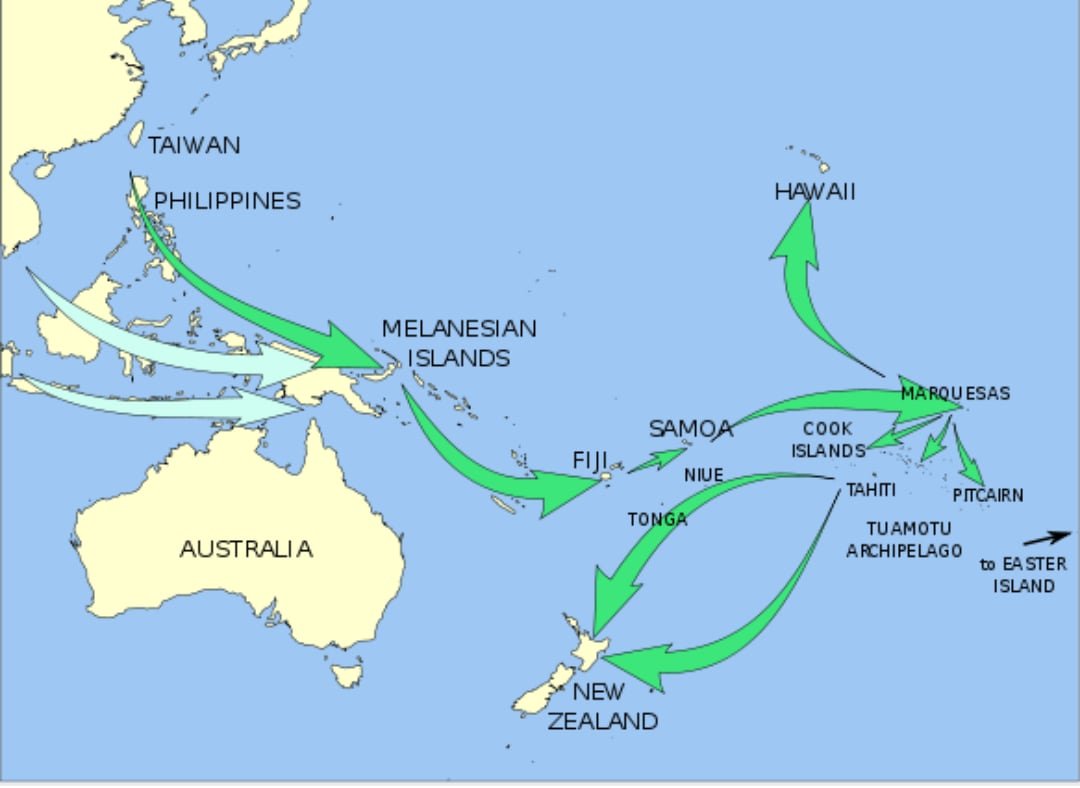

https://twitter.com/EYlin20177490/status/1283430880237678592We visited the Tainan Art Museum earlier this year. We were also reminded of how the massacre took the lives of numerous Taiwanese intellectuals. My mum commented that it's tragic that it was "our own people" that inflicted such misery on the Taiwanese people. I was shook. 2/
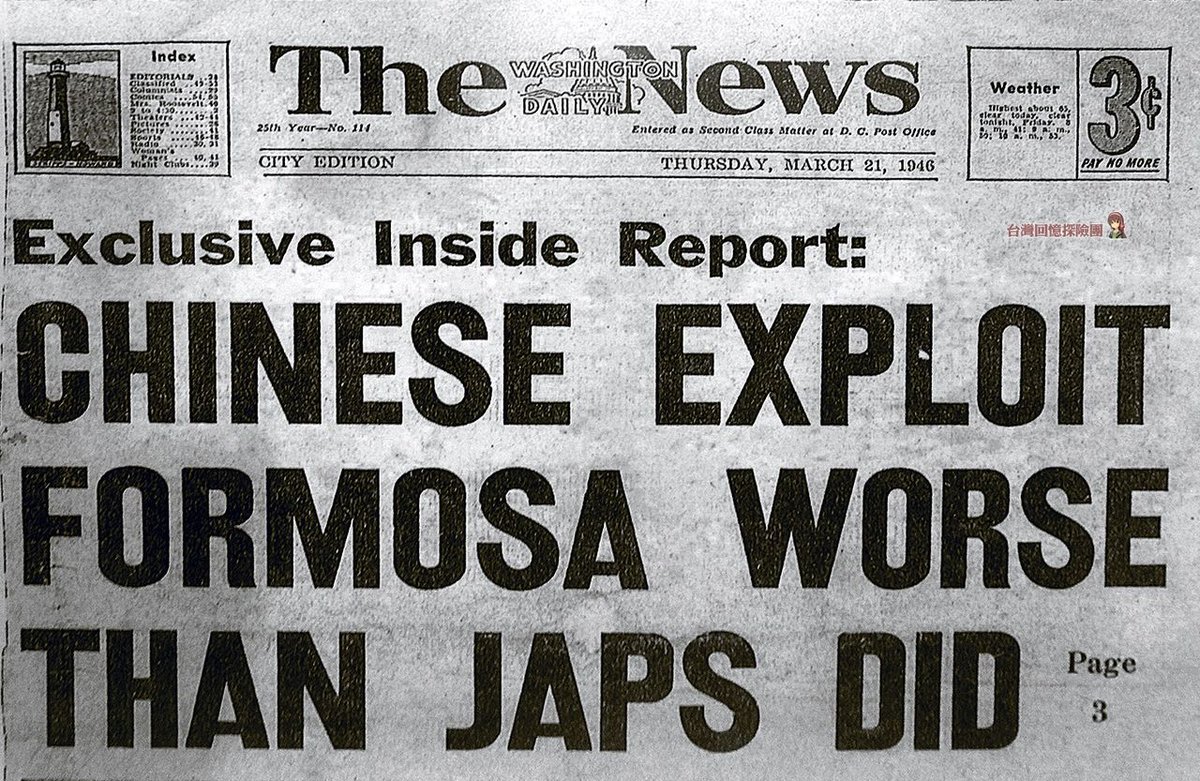
https://twitter.com/JChengWSJ/status/1277482639964831744
 The undetermined status of Taiwan is a direct result of 20th century American & Chinese imperialism, thinking that superpowers could decide the fate of millions for their own security benefits. And if we don't talk about Taiwan, the same tragedy would happen to the people again.
The undetermined status of Taiwan is a direct result of 20th century American & Chinese imperialism, thinking that superpowers could decide the fate of millions for their own security benefits. And if we don't talk about Taiwan, the same tragedy would happen to the people again. 
https://twitter.com/catielila/status/1260612734019870725This seems to mirror the idea of "the persistent pressure to soften identities and avoid confrontation" described in @catielila's "Andrew Yang is #TaiwaneseAmerican". Sadly, this might be the reality for Taiwanese diaspora in political participation.

https://twitter.com/cloudleviathan/status/1258119443768467456If he/she is from Brisbane, it is also likely that the family came from Kaoshiung. Absurd but people say it's the similar climate. The Taiwanese community, along with the HK migrants, were some of the earlier non-white migrants after the abolishment of White Australia policy. (2)
https://twitter.com/iingwen/status/1254709675976585216(1) The necessity of cooperation & reconciliation in a multi-cultural settler society & new-world frontier. This is comparable to #Australia where settlers came together, put their old-world conflicts (ex. Irish vs English) & hierarchy behind, to build a more egalitarian society.
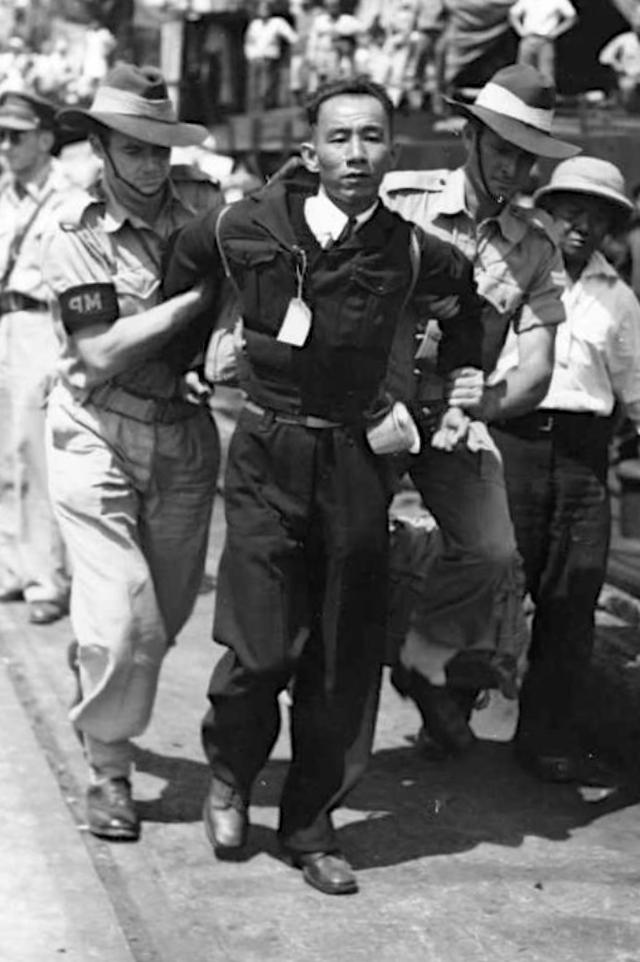

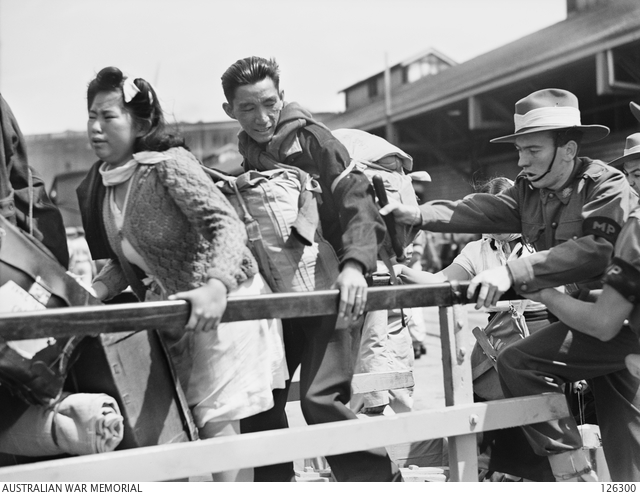
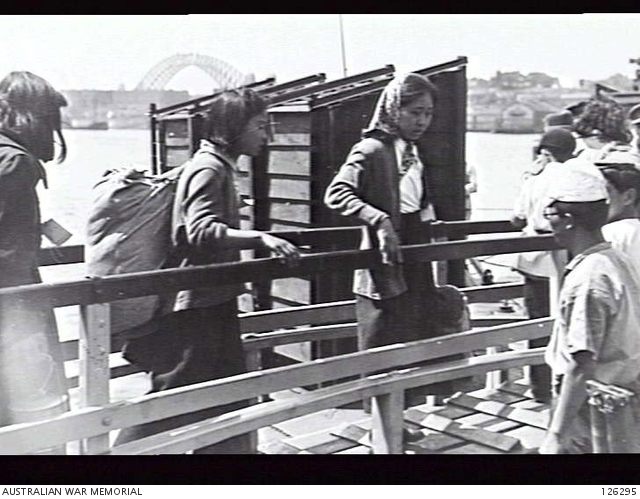 In the Loveday camp alone, there were 600 Formosan civilians. In addition to the hardship and lack of freedom, "Formosan internees were bullied for not signing allegiance to the emperor (Japan)". Tbh smart move considering you're in an Australian camp. (2)
In the Loveday camp alone, there were 600 Formosan civilians. In addition to the hardship and lack of freedom, "Formosan internees were bullied for not signing allegiance to the emperor (Japan)". Tbh smart move considering you're in an Australian camp. (2)